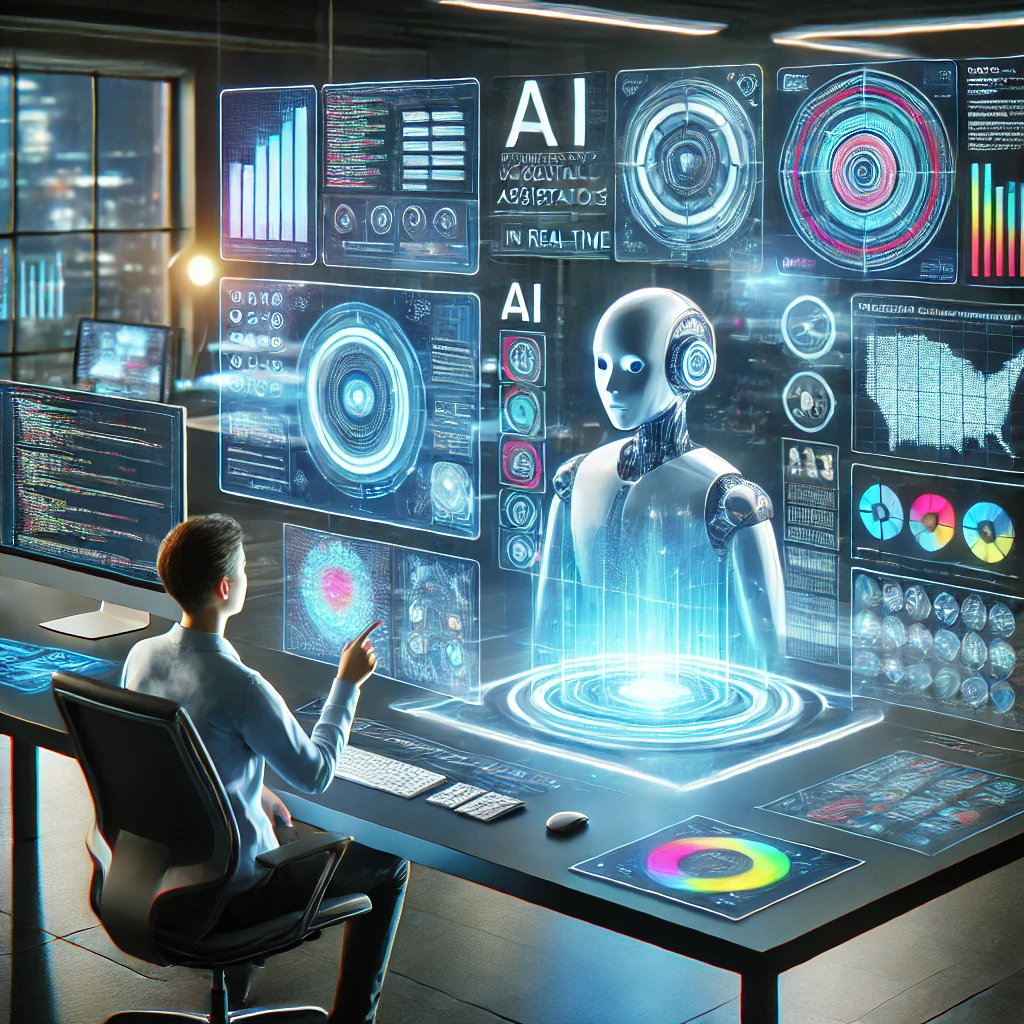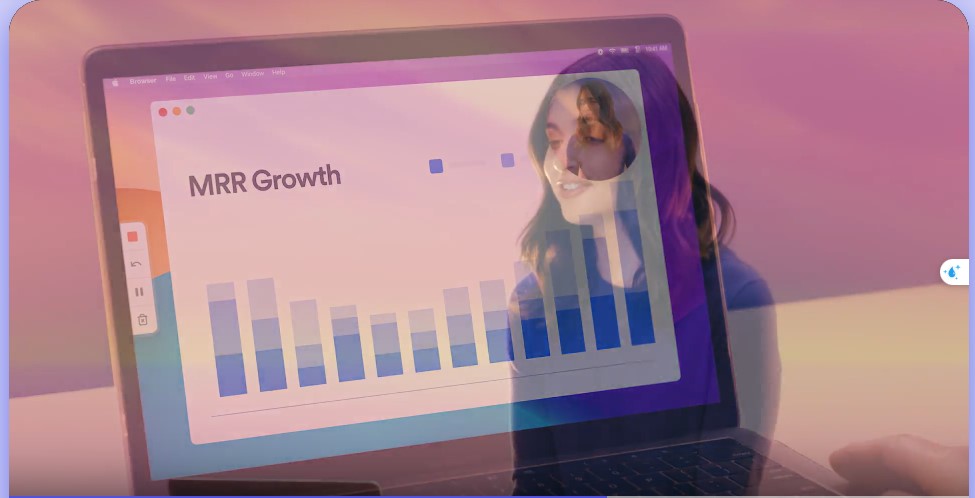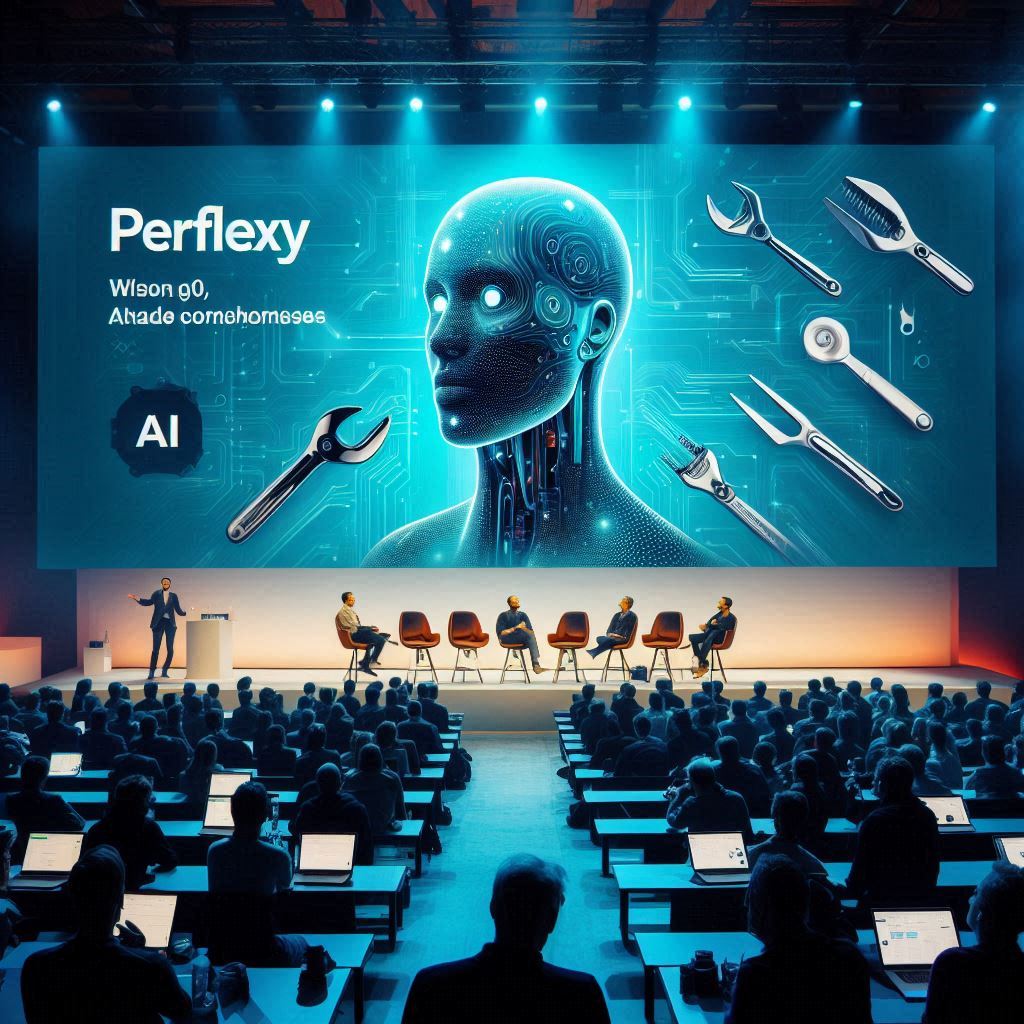How to Build an AI-Enhanced Team for Success

Intro
Building a successful AI-enhanced team in 2025 goes beyond simply implementing AI tools. It’s about creating a culture where humans and AI work together seamlessly to drive innovation, increase productivity, and unlock new opportunities. Whether you’re in marketing, finance, project management, or customer service, integrating AI tools can streamline operations, improve decision-making, and free up your team to focus on high-value, creative tasks.
However, simply adopting AI technology isn’t enough. To truly leverage its potential, you need to focus on the human side of AI integration—ensuring your team is trained, motivated, and ready to work alongside AI. In this article, we’ll explore the key steps to building a high-performing AI-powered team, overcoming common challenges, and preparing for the future of work, where collaboration between humans and AI is critical to success.
How to Create an AI-Enhanced Team in 2025
1. AI-Enhanced Team: Invest in the Right AI Tools
The foundation of an AI-enhanced team starts with selecting the right AI tools that align with your team’s specific needs and goals. Not all AI solutions are created equal, so it’s important to choose tools that not only meet your current requirements but also scale with your team as it grows.
Whether you’re looking for AI tools to optimize data analysis, automate customer service, manage projects, or improve marketing strategies, the key is to identify solutions that integrate seamlessly with your existing workflows and amplify your team’s capabilities.
For example, if you’re managing a marketing team, AI-powered platforms like HubSpot or Marketo can automate repetitive tasks, such as lead scoring, email segmentation, and performance tracking, allowing your team to focus on strategy. Similarly, AI-enhanced project management tools like Monday.com or Trello can help streamline task prioritization, optimize deadlines, and boost overall productivity. Take the time to explore and evaluate various options, ensuring the tools you choose provide the greatest value and support for your team’s unique needs.
2. AI-Enhanced Team: Train Your Team to Work with AI
While AI can be a powerful asset, its true potential is unlocked only when your team knows how to use it effectively. Providing proper training is essential to ensure that everyone—from entry-level employees to senior leaders—understands how to integrate AI into their workflows and optimize its capabilities. Since AI technologies evolve rapidly, ongoing training will help your team stay up-to-date with the latest features and innovations.
For non-technical team members, training should focus on how AI can streamline everyday tasks, enhance decision-making, and foster creativity. For more technically inclined staff, offer specialized training to dive deeper into how AI can be customized and implemented to meet your business’s specific needs.
To ensure success, consider partnering with AI solution providers to offer comprehensive training programs, or create a mentorship system where more experienced employees help others get up to speed. Providing clear, practical guidance on how to use AI tools will not only build confidence but also empower your team to leverage AI to its full potential.
3. Foster a Culture of Collaboration Between Humans and AI
For an AI-enhanced team to truly succeed, it’s crucial to build a culture where AI isn’t seen as a replacement for human skills but as a powerful tool to complement them. By viewing AI as a collaborative partner—rather than a competitor—you can unlock the full potential of both human creativity and AI efficiency.
This cultural shift is essential for ensuring that AI not only amplifies productivity but also enhances the unique qualities that humans bring to the table, such as strategic thinking, empathy, and problem-solving.
Encourage your team to embrace AI as an enabler, not a threat. Help them understand that AI can take on repetitive, time-consuming tasks, giving them more time to focus on higher-value work like brainstorming, strategizing, and building relationships.
To build trust in the AI systems you’re using, create an environment where open dialogue is encouraged. Regularly check in with your team to discuss how they’re using AI, share success stories, and gather feedback on challenges or areas for improvement.
By fostering this collaborative mindset, you’ll ensure that both humans and AI can work together to drive innovation, solve complex problems, and achieve shared goals.
4. Continuously Evaluate and Optimize AI Tools
AI tools are constantly evolving, with new features and capabilities emerging regularly. To ensure your AI-enhanced team stays at the forefront of innovation, it’s essential to continuously evaluate the performance of your AI tools and optimize them based on feedback and results. This ongoing assessment will help you identify areas where AI can add more value, as well as areas where tools may not be meeting your expectations.
Regularly monitor how well your AI tools are helping your team meet its goals. Are they increasing productivity? Streamlining workflows? Improving decision-making? By tracking performance, you can make data-driven decisions about which tools are working—and which ones need adjustment or replacement.
If a particular tool isn’t performing as expected, don’t hesitate to tweak its settings, explore new features, or even consider switching to a different solution. Staying open to change and innovation will ensure that your AI tools always align with your team’s evolving needs.
Additionally, keep an eye on emerging AI technologies that could provide new capabilities or enhancements. The AI landscape is fast-moving, and staying ahead of the curve will give your team a competitive advantage.
5. Encourage a Mindset of Continuous Learning
As AI technologies continue to advance at a rapid pace, it’s crucial to foster a mindset of continuous learning within your team. AI is still a relatively new field for many industries, and its applications are vast and constantly evolving. By promoting a culture of ongoing education and curiosity, you can ensure your team remains agile, adaptable, and ready to embrace new AI innovations as they emerge.
Encourage your team to stay updated on the latest AI trends, tools, and best practices through online courses, webinars, and industry conferences. This will help them stay ahead of the curve and fully leverage the potential of AI in their work. Additionally, promoting experimentation with new AI solutions can spark creativity and inspire fresh ideas for improving workflows and processes.
By creating an environment where learning is valued, you empower your team to embrace change, experiment with new technologies, and develop the skills necessary to thrive in an increasingly AI-driven world. This continuous learning mindset will not only enhance individual performance but also drive overall team success as AI becomes more integrated into daily operations.
The Future of AI-Enhanced Teams
As AI technologies continue to evolve, the role they play in transforming how teams work, collaborate, and innovate will only grow. The future of AI-enhanced teams is incredibly promising, with advancements in machine learning, natural language processing, and automation driving major changes. Let’s explore some key trends and developments that will shape the future of AI-enhanced teams.
1. Increasing AI Autonomy in Decision-Making
As AI continues to improve, we can expect systems to take on more autonomy in decision-making, with minimal human intervention. This will be especially impactful in industries like finance, healthcare, and supply chain management, where AI can process vast amounts of data in real-time to make accurate decisions.
Example: Autonomous AI could help make trading decisions in stock markets or suggest medical diagnoses based on live data analysis. This will not only speed up decision-making but also improve accuracy by leveraging larger datasets and uncovering patterns that might be difficult for humans to detect.
However, as AI takes on more decision-making power, teams will need to establish clear oversight protocols. Human judgment and ethical considerations must remain central to AI-driven decisions to ensure that the technology aligns with organizational values.
2. Seamless Human-AI Collaboration
The future of AI-enhanced teams lies in seamless collaboration between humans and AI. AI tools will become more intuitive and embedded into daily workflows, allowing employees to focus on high-level problem-solving, creativity, and strategic thinking, while AI takes care of repetitive tasks and data-heavy work.
Example: AI-powered virtual assistants could handle scheduling, task management, and even brainstorming sessions. Collaborative robots (cobots) will work alongside human employees in settings like manufacturing, responding in real-time to changing conditions and sharing tasks.
As human-AI collaboration becomes more fluid, we may also see the emergence of new roles, such as “AI liaisons” or “AI champions,” who bridge the gap between human teams and AI tools, ensuring the collaboration is effective and aligned with organizational goals.
3. AI-Driven Personalization at Scale
One of the most exciting aspects of AI-enhanced teams is the ability to deliver hyper-personalized experiences at scale. With AI, teams will be able to create highly tailored products, services, and marketing campaigns that resonate with individual customers on a deeper level.
Example: In sales, AI can identify unique customer preferences, predict purchasing behavior, and recommend personalized solutions. Similarly, in marketing, AI will optimize ads in real-time and generate content tailored to specific customer needs, boosting engagement and loyalty.
This ability to personalize at scale will help organizations offer better customer experiences, increase conversion rates, and build stronger, more lasting relationships with their audiences.
4. Advanced Emotional Intelligence and AI
In the future, AI systems will develop advanced emotional intelligence, allowing them to better understand and respond to human emotions. Through innovations in natural language processing (NLP) and sentiment analysis, AI will be able to detect emotional cues in text, voice, and even facial expressions.
Example: AI-powered chatbots could recognize when a customer is frustrated or upset and escalate the conversation to a human agent who can provide a more empathetic response. Similarly, AI can help managers monitor employee sentiment and morale, enabling organizations to support their workforce better.
By combining empathy with AI’s processing power, teams can create more human-centered interactions, ensuring that emotional intelligence remains a key part of team collaboration, even when AI is involved.
5. AI-Enhanced Team: Continuous Learning and Adaptation
The future of AI-enhanced teams will feature AI systems that are increasingly capable of continuous learning and adaptation. These systems will evolve on their own, improving their performance and decision-making over time based on new data and experiences.
Example: AI used in supply chain management could learn from past disruptions and anticipate future challenges, allowing teams to take proactive action before problems arise. This self-learning capability will enable AI to adapt to ever-changing conditions, making it an invaluable tool for decision-making in industries like healthcare, logistics, and energy management.
By leveraging AI that learns and adapts, teams can stay ahead of potential issues, drive innovation, and be more responsive to emerging opportunities.
6. AI-Enhanced Team: Democratization of AI Tools
As AI technology becomes more accessible, smaller businesses and startups will have access to the same powerful tools that were once only available to large corporations. This democratization of AI will level the playing field and open up new possibilities for innovation, especially for organizations that previously lacked the resources to adopt AI.
AI tools will continue to become more affordable, customizable, and user-friendly, enabling non-technical team members to incorporate AI into their workflows seamlessly. This shift will empower a broader range of teams to harness the power of AI, unlocking new avenues for growth, productivity, and efficiency.
7. AI-Enhanced Team: Ethical AI and Accountability
As AI becomes more integrated into decision-making processes, ethical concerns will remain a critical issue. In the future, there will be a stronger emphasis on creating ethical AI systems that are transparent, fair, and accountable. AI will need to operate in a way that aligns with societal values and organizational ethics.
Example: AI will need to address issues like algorithmic bias, data privacy, and accountability. Organizations will develop frameworks for AI governance, ensuring AI decisions can be explained, audited, and justified.
The focus on ethical AI will ensure that organizations can trust the technology they deploy, reducing risks and ensuring that AI remains a force for good.
Conclusion: Embracing the AI-Enhanced Future
As we move deeper into the era of artificial intelligence, building and nurturing AI-enhanced teams will be key to staying competitive, fostering innovation, and driving business success. By integrating AI into team workflows, organizations can unlock significant improvements in efficiency, creativity, and decision-making. However, successfully building an AI-enhanced team is not just about choosing the right tools—it’s about cultivating a culture where human ingenuity and AI technology work hand-in-hand.
The future of AI-enhanced teams offers exciting possibilities, from more autonomous decision-making and personalized customer experiences to enhanced emotional intelligence, and continuous learning. But as we move forward, it’s crucial to remain aware of the challenges that come with these advancements, such as overcoming resistance to change, ensuring data quality, and addressing ethical concerns. These obstacles can be mitigated by thoughtful planning, ongoing training, and a commitment to fostering a culture of collaboration between humans and AI.
In the end, the true potential of AI lies not in replacing humans, but in enhancing what makes us uniquely human. By embracing AI as a valuable partner, organizations can create empowered teams that drive innovation, solve complex problems, and lead in their industries. The AI-enhanced future is bright—are you ready to be a part of it?











